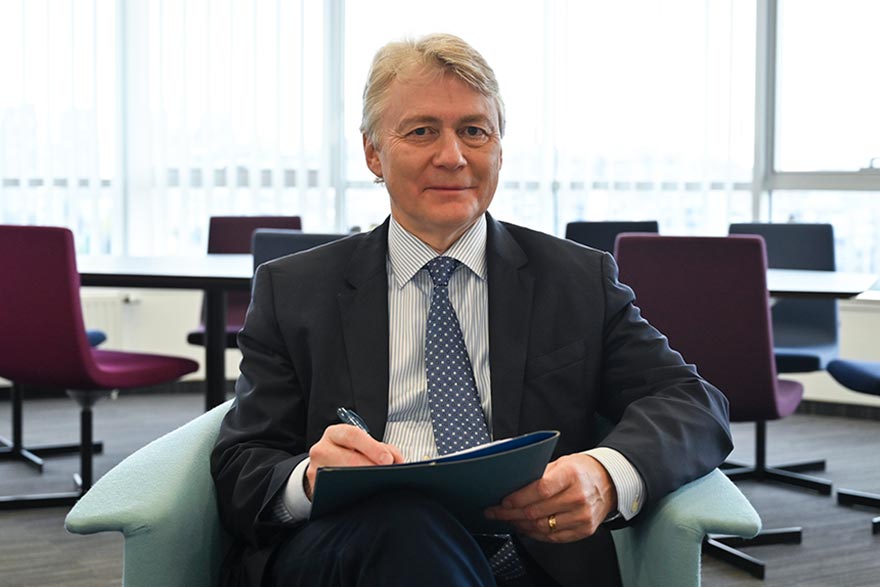Today I believe we have managed to control and contain the spread of COVID-19 effectively in Norway.
I remember 12 March when the Norwegian Government introduced a series of measures in the hope of stopping the spread of this virus. But it didn’t. On the contrary, we all observed that virus-infection continued to spread uncontrollably. At this point, we could sense an increasing concern among leading politicians and medical experts in Norway for a scenario where an explosive spread overwhelmed the health system and crushed the capacity of intensive care units. Not surprisingly, stronger and more targeted action was called for.
As a response to this tense and unpredictable situation, the Norwegian Parliament agreed unanimously on 21 March to give the Government emergency powers to fight the pandemic in a more effective way. This necessitated the introduction of a policy of virus-suppression and not only measures to mitigate. A new policy was suddenly under implementation. The measures of this policy were the strongest and most comprehensive Norway has ever seen in peacetime. This temporary legislation, called the Corona Act, gave the Government extended authority to add to or depart from certain legal measures without consulting the Parliament.
Norway contributed with more than USD 350 million for research and development of a COVID-19 vaccine
The time was of the essence, and the time pressure that was building up did not allow for regular procedures or provisions as set out by the Norwegian Constitution if required actions were to be taken. To ensure a sufficient level of parliamentary control with the Government’s emergency powers, the parliament decided to consider a written declaration from at least one-third of the total number of the MPs to be sufficient to block any new legal initiative rooted in the emergency act.
This resulted in a complete lock-down of kindergartens, schools and universities, large and small businesses, restaurants, fitness centres and concert venues. We experienced a prohibition of organized sporting activities both indoors and outdoors. Borders were closed. Draconic guidelines for social distancing and anti-infectious behaviour were suddenly imposed on citizens and regulated both public space and the private sphere.
A lot of things that we, as human beings, cherish and found both life-basic and enriching were suddenly put on hold. Within days, the social dimension of life became severely curtailed, as we entered into a state of cage-life. Most certainly, Norway was not the only country in Europe to experience this dramatic change. But I have to commend my compatriots for behaving responsible, exhibiting an extraordinary level of patience, and voluntary renouncing cherished activities and freedoms we all take for granted.
This combination of a political strategy, collective resolve and individual responsibility has not only flattened the curve but made the curve decline. At the time of writing, Norway has experienced a drop in hospitalized persons by almost 80%, a drop in numbers of persons in need of intensive care by 75%, and a drop in numbers of cases requiring respirator treatment by more than 80%. The reproductive rate of the virus in Norway is currently down at 0,5, meaning one infected person can statistically transmit the infection to 0,5 other persons.
But even though we know how quickly we can lose our gains in this fragile and highly reversible situation, it is now urgent to loosen the restrictive measures gradually without losing the grip on the pandemic itself. We have to find the fine balance between the epidemiological risks and socio-economic requirements and incentives. Economic activity measures have to be taken in a phased, step-wise manner, and at this moment, I am happy to see Norway opening up for renewed economic activities.
The Norwegian business community is in its toughest battle ever. But in recent weeks, a number of immediate measures have been taken by the Government to improve liquidity in companies, and more will come. Fortunately, the Norwegian economy is fundamentally solid, and we have room to manoeuvre on economic policy. This is the time for corporate and social responsibility.
But this is also the time for global cooperation and coordination. As long as the virus is active somewhere, we are at risk everywhere. To protect ourselves, we must also protect others.
That is why Norway is strongly supporting the global movement for mobilizing all relevant professional capacities in order to fight the COVID-19 pandemic as effective as possible.
And this is why Norway has decided to contribute with more than USD 350 million for research and development of a COVID-19 vaccine, and for improving diagnostics and treatment.
And this is why Norway believe we need a strong and efficient World Health Organization; the key multilateral body to lead on in coordinating international efforts in combatting the pandemic threat.
We have all to unite if we are to succeed in fighting down this pandemic nightmare.
